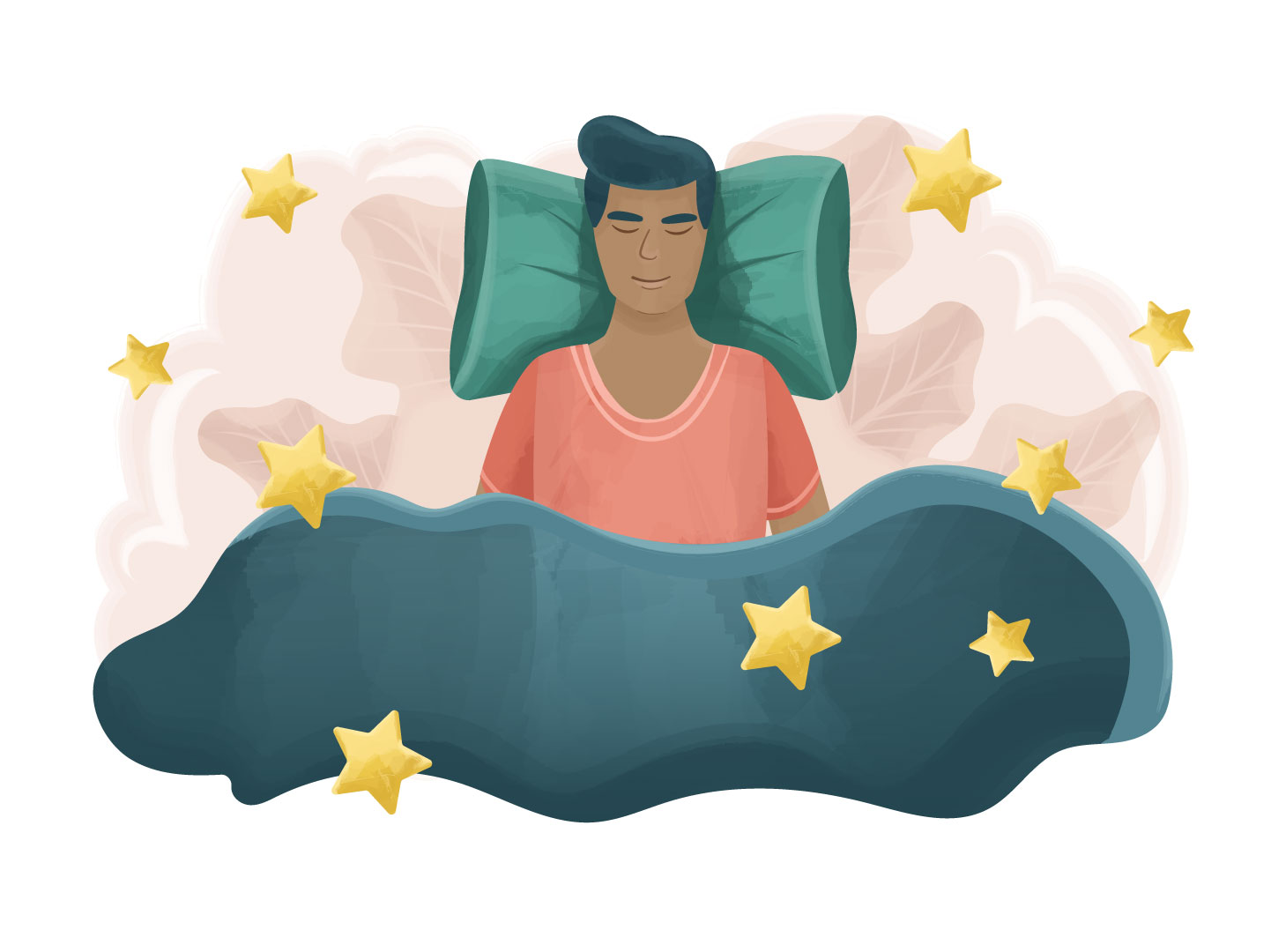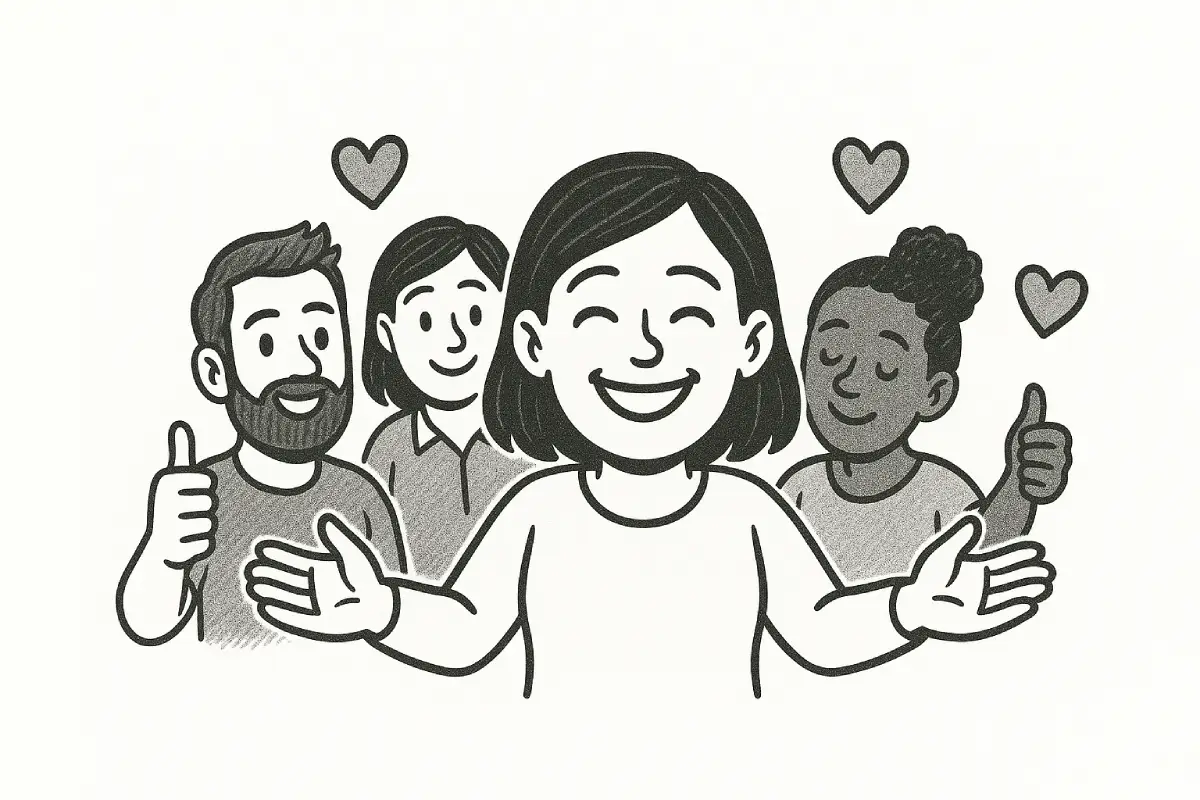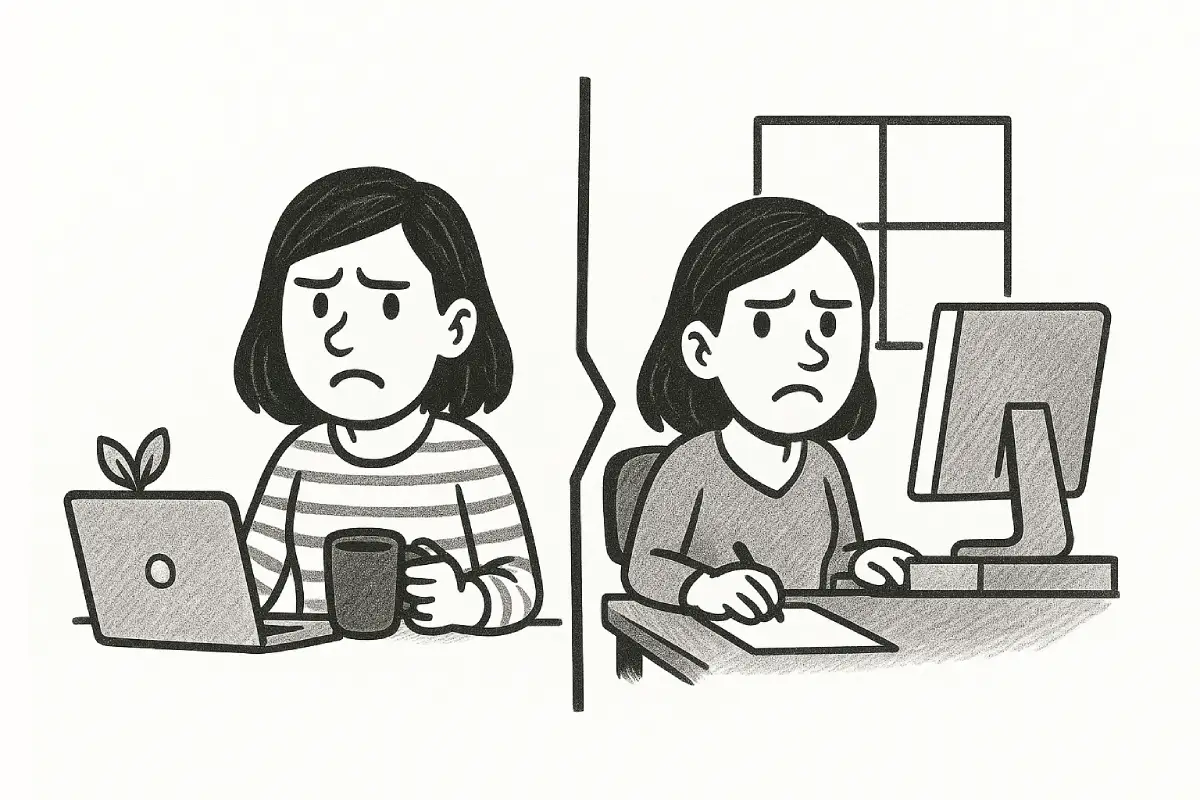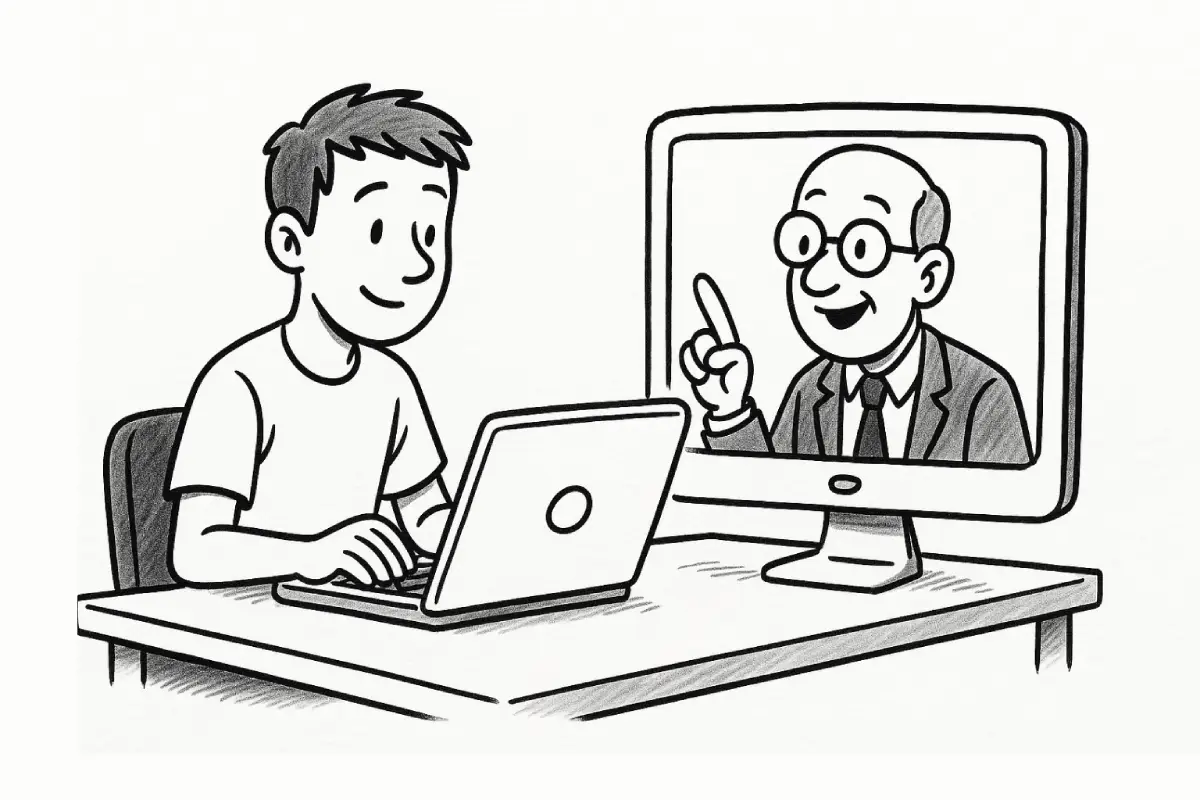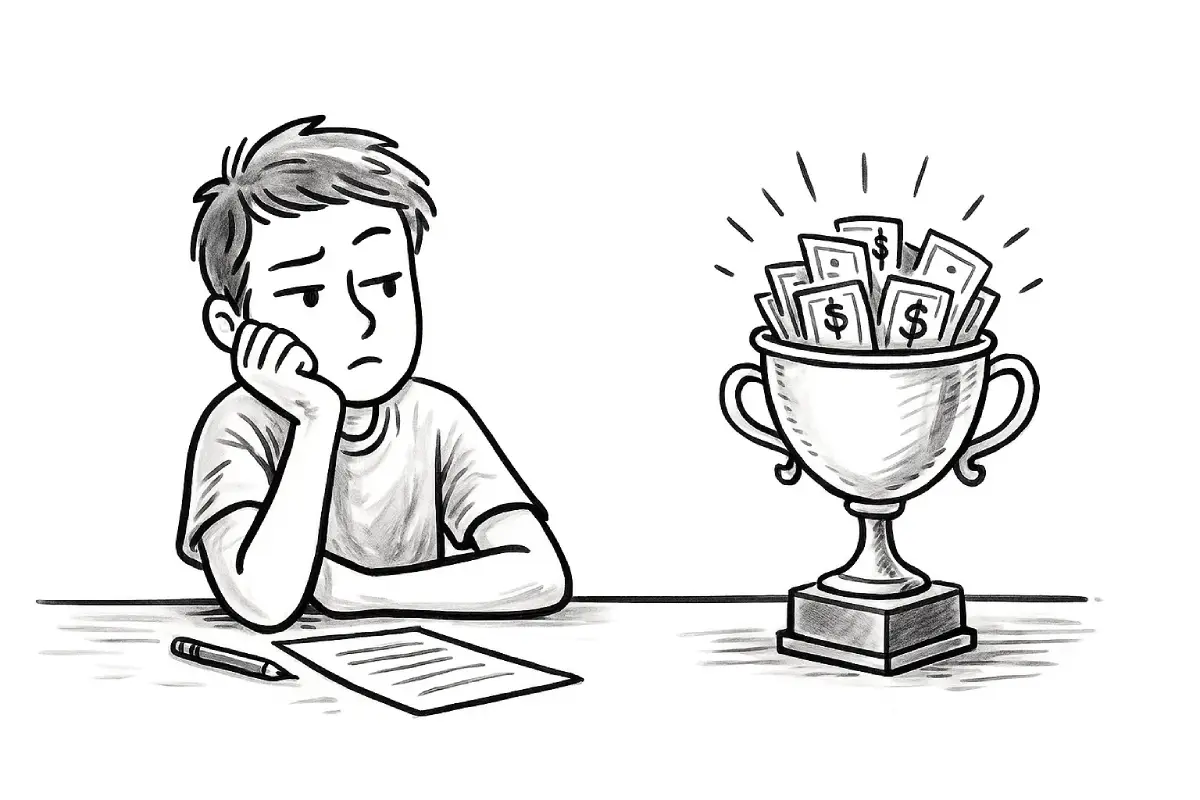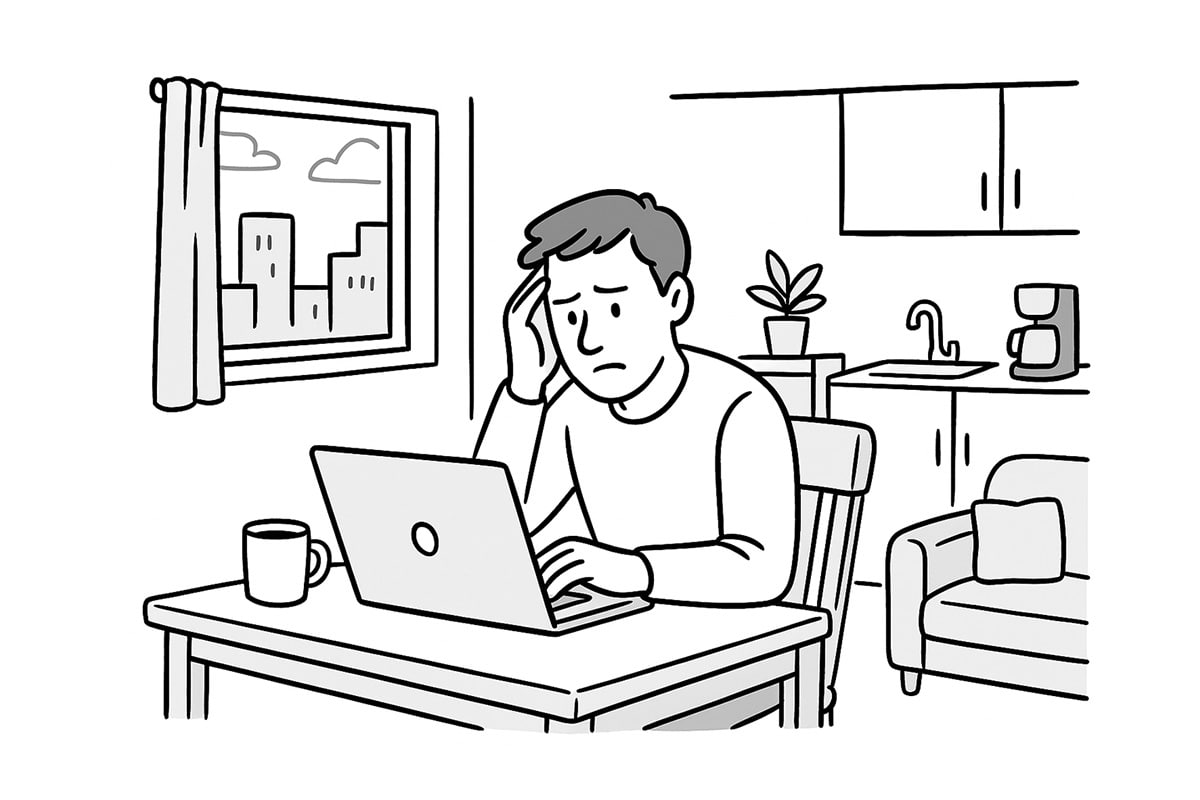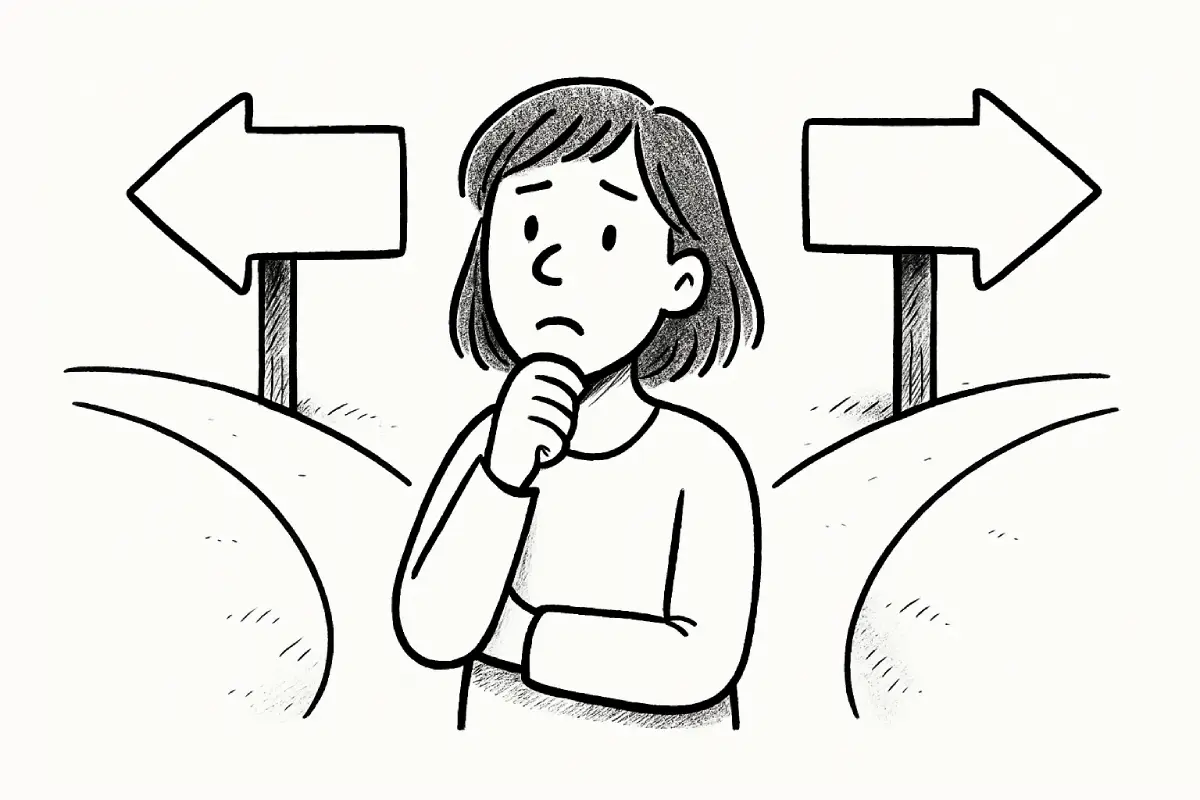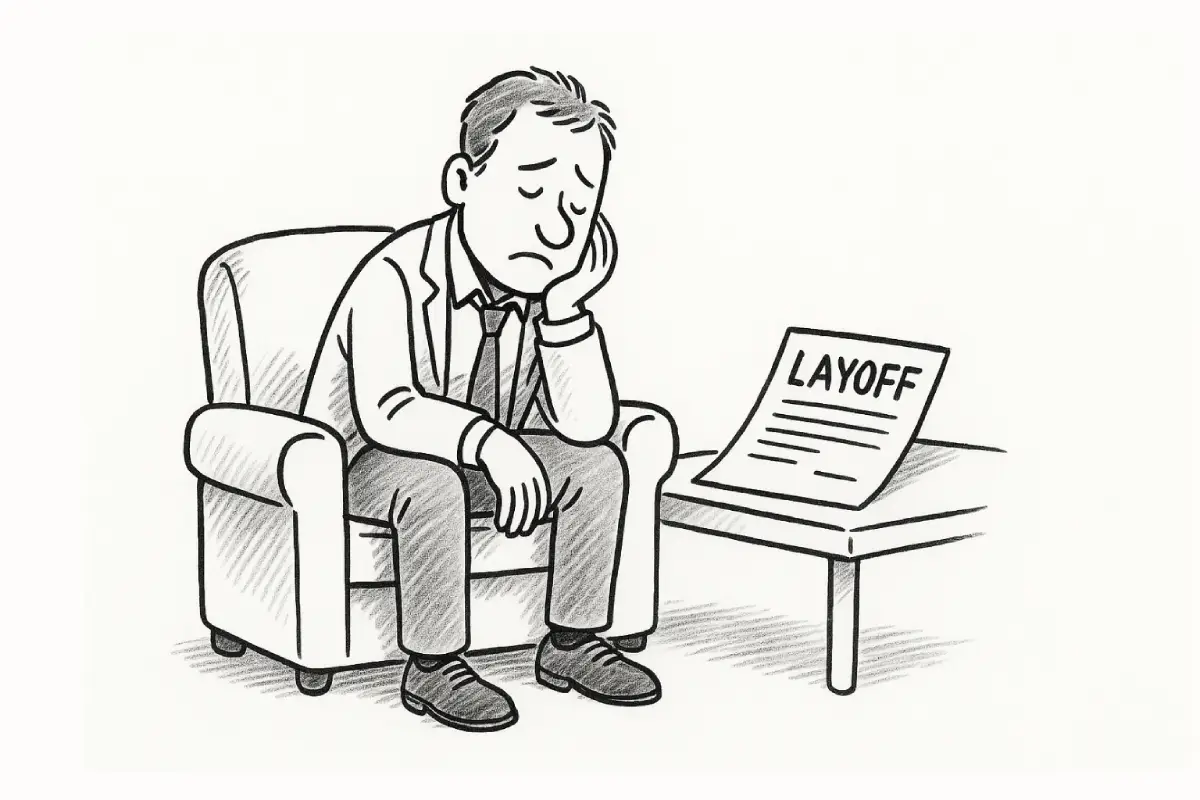You have the protocol for shutting down the body. You’ve decommissioned the muscles and overridden the nervous system with breathwork. Yet, you’re still awake. Why? Because your mind has refused to stand down.
Your brain is running at high RPM, caught in a loop of post-mortems, what-if scenarios, and tomorrow’s to-do list. This is not a failure of the physical shutdown protocol. This is a different class of problem. The mind is not a muscle you can command to relax. It’s a problem-solving engine, and if you don’t give it the right problem, it will invent its own—usually in the form of anxiety.
The common advice to “empty your mind” is not only useless; it’s counterproductive. Telling a high-performance brain to go empty is like telling a guard dog to ignore a threat. It will only increase its agitation.
You cannot out-muscle a racing mind with relaxation. You must out-maneuver it with strategy. This requires a cognitive override. This is not about finding your zen; it’s about executing a deliberate, three-step mental maneuver to re-task your brain and force it offline.
The Fallacy of Thought Suppression
Before we begin, internalize this rule: What you resist, persists. Trying to actively suppress or “stop” anxious thoughts gives them power. It signals to your brain that these thoughts are a genuine threat, which in turn triggers a stress response, making sleep even more elusive.
Our strategy is not suppression. It is acknowledgment, redirection, and engagement in a task that starves the anxiety loop of the cognitive fuel it needs to survive.
The 3-Step Cognitive Override Protocol
This protocol is for when your mind is the sole barrier to sleep. Execute it with precision.
Step 1: The Threat Triage (90 Seconds)
Your brain keeps replaying thoughts because it perceives them as “open loops”—unfinished tasks or unresolved threats. Your first step is to formally acknowledge these loops to signal that they are captured and will be dealt with.
- Keep a pen and a small, non-digital notebook by your bed. This is a non-negotiable tool. The use of a phone for this exercise is forbidden; its light and functionality are contaminants.
- When your mind is racing, sit up, turn on a very dim, warm-colored light, and open the notebook.
- Execute a “Brain Dump.” For no more than 90 seconds, write down every single thought, worry, idea, or task that is looping in your head. Use a rapid-fire, bullet-point format. Do not elaborate. Do not journal. This is a tactical data transfer. Get it out of your mind and onto the page.
- Close the Loop. After 90 seconds, put the pen down. At the bottom of the list, write this exact sentence: “This is documented. Action will be taken tomorrow at 8:00 AM.”
This act of writing and scheduling is a contract with your brain. You have addressed its concerns and given it a concrete plan. This formally closes the open loops for the night, granting it permission to stand down. Close the notebook. Turn off the light. Lie back down.
Step 2: The Sensory Anchor (2 Minutes)
Now that the “threats” are neutralized, you must pull your brain from the abstract world of past and future into the physical reality of the present moment. You will do this by concentrating all your mental focus on a single, neutral sensory input. This is not passive observation; it is an active, deep-focus drill.
Choose one of the following:
- Tactile Anchor: Focus on the physical sensation of the bedsheets on one, specific part of your body—for instance, the tops of your toes or the back of your right hand. Pour your entire consciousness into that single point. Analyze the sensation. Is it smooth or rough? What is the precise temperature? What is the exact pressure? Your sole job is to observe and analyze this one tiny patch of physical reality.
- Auditory Anchor: Focus on a constant, ambient sound—the hum of an air conditioner, the whir of a fan, a white noise machine. Do not just hear it; dissect it. Listen for the highest and lowest frequencies within the sound. Is there a rhythm or pattern? The goal is to become so absorbed in the analysis of the sound that it occupies your entire auditory processing channel.
When your mind inevitably wanders back to a racing thought, do not get frustrated. That is the expected behavior of an untrained mind. Simply notice the distraction and then deliberately, firmly, return your focus to your sensory anchor. Each time you do this, it is a rep in your mental training.
My Rule: You cannot think two thoughts at once. By forcing intense concentration on a neutral physical sensation, you are actively starving the anxious thought patterns of the attention they require to exist.
Step 3: The Memory Palace Re-Route (Until Sleep)
Your mind is now anchored in the present. The final step is to give it a complex, non-emotional task that will fully engage its working memory, leaving no cognitive bandwidth available for rumination.
You will mentally reconstruct a place you know intimately, in painstaking detail. This is your “memory palace.”
- Choose Your Palace: Select a real place you can navigate in your mind with ease. Your childhood home is a classic example. An old office, a university library, a favorite museum. The location must be rich in detail and emotionally neutral or positive.
- Begin the Walkthrough: Start at the front door. Visualize your hand on the doorknob. What is its shape, temperature, and texture? Open the door. What sound does it make? Step inside.
- Engage All Senses (Mentally): Systematically move through the space, room by room. Your task is to reconstruct it with maximum sensory detail.
- Sight: What was the exact pattern on the wallpaper? What pictures were on the wall? What color was the carpet?
- Touch: What was the texture of the sofa fabric? The coolness of the kitchen counter?
- Sound: What was the specific creak of a certain floorboard? The hum of the refrigerator?
- Smell: What did the front hall closet smell like? The kitchen?
This is a highly demanding cognitive exercise. It engages your visuospatial centers, your memory recall, and your sensory processing—all of which are resource-intensive. It effectively “crowds out” the verbal, narrative-based thought loops that constitute anxiety. Your brain is so occupied with the reconstruction task that it has no room left for worry.
It is during this deep, focused, non-emotional mental engagement that you will seamlessly transition into sleep.
Final Mandate
These are not suggestions to try when you feel like it. This is a protocol to be drilled. The Threat Triage, the Sensory Anchor, and the Memory Palace are your strategic weapons against a runaway
You might also like: Why Hybrid Work Might Become the Worst of Both Worlds
